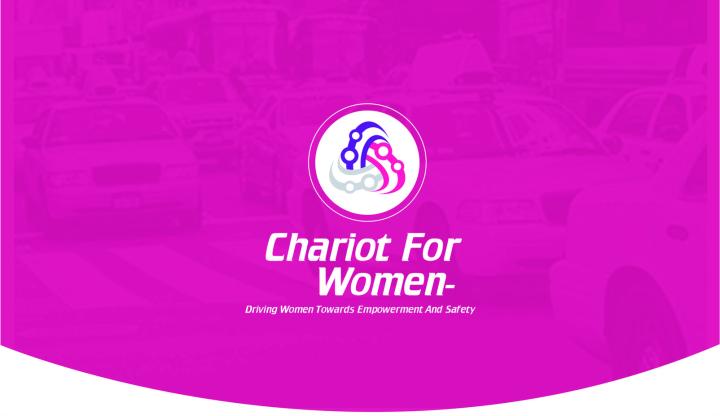
Founded by former Uber driver Michael Pelletz, the new company is based in Boston and will start picking up its first passengers on April 19. “The premise is the same as all the other ridesharing services,” Pelletz told TechCrunch in a phone interview. “There’s a driver app and a client app, except that what makes us unique is our safety feature that other apps forgot to do.”
Ultimately, what differentiates Chariot from the hoards of other apps out there is the code the company sends both drivers and passengers once a ride has been requested. In order for a pickup to be made, both parties have to ensure that their respective codes match. What’s more, Chariot for Women donates 2 percent of its fares to charity, and there’s no surge charging to speak of.
While safety within such ride-sharing apps has been a contentious issue in the past, Pelletz uses Safer Places to perform background checks on its drivers. This company, which maintains a reputation for particularly strict standards, operates in tandem with Massachusetts’ Criminal Offender Record Information (CORI) check, which is employed in daycares and schools.
And as a truly progressive company, Pelletz says, “If [passengers are] trans and identify as a woman, they can drive and ride with us, no problem at all.”
“We believe that giving women and their loved ones peace of mind is not only a public policy imperative but serves an essential social interest,” Pelletz noted. “Our service is intended to protect these fundamental liberties, and we look forward to ending the inequality of security that currently afflicts drivers and riders on the basis of gender.”
There are likely legal difficulties ahead for a service that states outright that it will not serve men, though this doesn’t cause too much concern for Pelletz. “We look forward to legal challenges. We want to show there’s inequality in safety in our industry. We hope to go to the U.S. Supreme Court to say that if there’s safety involved, there’s nothing wrong with providing a service for women.”
“We’re doing this because there is such inequality when it comes to security that afflicts driver and rider due to gender,” Pelletz reiterated. “Women are across the world the ones being harassed and assaulted by male drivers. In my eight months as an Uber driver, I didn’t hear any negative feedback from men.”
There’s also the question of whether this is empowering women or patronizing them. So I put the question to social media and, to my surprise, got a unanimous response: yes, if there were a women-only ridesharing service, every woman who answered my question would use it. Women in my unscientific poll mentioned feeling anxious when they get in a car with a strange man, not trusting the vetting process used by current services and the “creep factor.” The enthusiasm for an all-female service ranged from “I would be all over it” to “HELL YES.” And one woman pretty much summed up the issue with her response: “Honestly, yes, probably. I do sigh in relief when I get into a car with a woman.”
“Our goal is that in five years, we want this issue to not even be an issue anymore,” said Pelletz. “We hope other rideshare companies follow in our footsteps to make it safer. Right now, that safety is not happening.”


